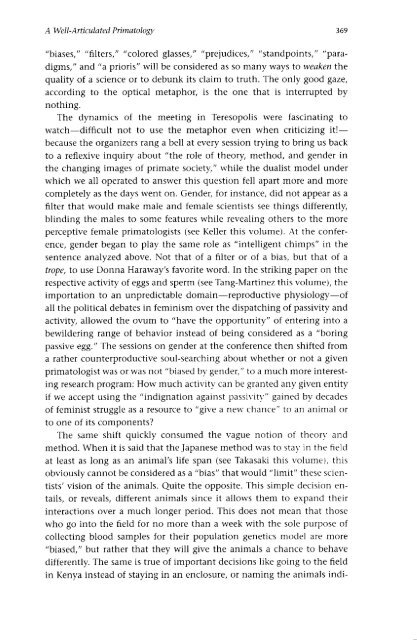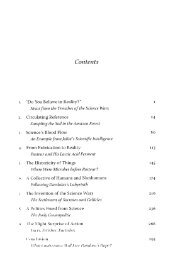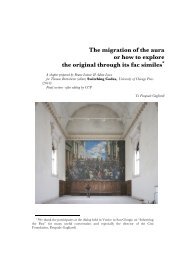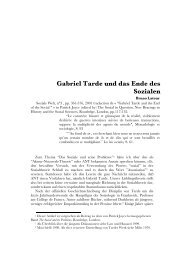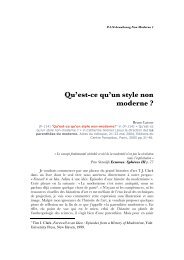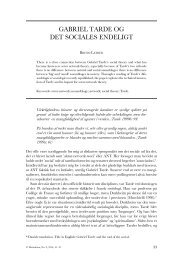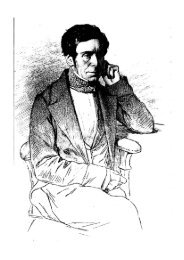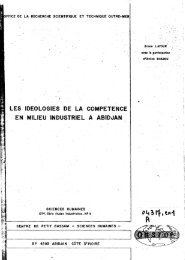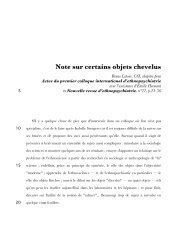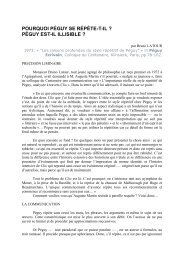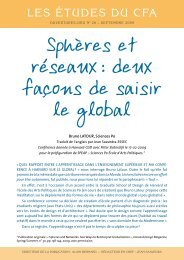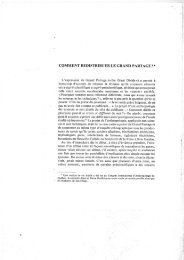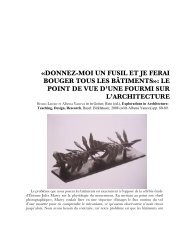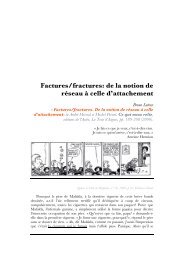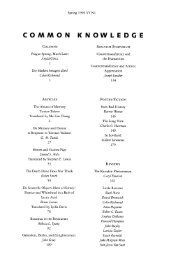A Well-Articulated Primatology - Bruno Latour
A Well-Articulated Primatology - Bruno Latour
A Well-Articulated Primatology - Bruno Latour
You also want an ePaper? Increase the reach of your titles
YUMPU automatically turns print PDFs into web optimized ePapers that Google loves.
A Wel I - Artic ul ate d P ri mato lo gy<br />
369<br />
"biases," "filters," "colored glasses," "preiudices," "standpoints," "paradigms,"<br />
and "a prioris" will be considered as so many ways to weaken Ihe<br />
quality of a science or to debunk its claim to truth. The only good gaze,<br />
according to the optical metaphor, is the one that is interrupted by<br />
nothing.<br />
The dynamics of the meeting in Teresopolis were fascinating to<br />
watch-difficult not to use the metaphor even when criticizing itlbecause<br />
the organizers rang a bell at every session trying to bring us back<br />
to a reflexive inquiry about "the role of theory, method, and gender in<br />
the changing images of primate society," while the dualist model under<br />
which we all operated to answer this question fell apart more and more<br />
completely as the days went on. Gender, for instance, did not appear as a<br />
filter that would make male and female scientists see things differently,<br />
blinding the males to some features while revealing others to the more<br />
perceptive female primatologists (see Keller this volume). At the conference,<br />
gender began to pla;t the same role as "intelligent chimps" in the<br />
sentence analyzed above. Not that of a filter or of a bias, but that of a<br />
trope, To use Donna Haraway's favorite word. In the striklng paper on the<br />
respective activity of eggs and sperm (see Tang-Martinez this volume), the<br />
importation to an unpredictable domain-reproductive physiology-of<br />
all the political debates in feminism over the dispatching of passivity and<br />
activity, allowed the ovum to "have the opportunity" of entering into a<br />
bewildering range of behavior instead of being considered as a "boring<br />
passive egg." The sessions on gender at the conference then shifted from<br />
a rather counterproductive soul-searching about whether or not a given<br />
primatologist was or was not "biased b,v gender, " to a much more interesting<br />
research program: How much activitl'can be granted any given entity<br />
if we accept using the "indignation against passivit\"' gained by decades<br />
of feminist struggle as a resource to "give a new chance" to an animal or<br />
to one of its components?<br />
The same shift quickly consumed the vague notion of theorv and<br />
method. When it is said that the Japanese method was to stav in the freld<br />
at least as long as an animal's life span (see Takasaki this volume), this<br />
obviously cannot be considered as a "bias" that would "limit" these scientists'<br />
vision of the animals. Quite the opposite. This simple decision entails,<br />
or reveals, different animals since it allows them to expand their<br />
interactions over a much longer period. This does not mean that those<br />
who go into the fleld for no more than a week with the sole purpose of<br />
collecting blood samples for their population genetics model are more<br />
"biased," but rather that they will give the animals a chance to behave<br />
differently. The same is true of important decisions like going to the field<br />
in Kenya instead of staying in an enclosure, or naming the animals indi-


